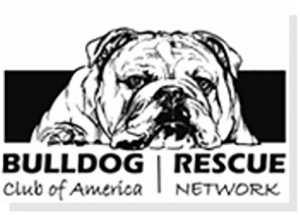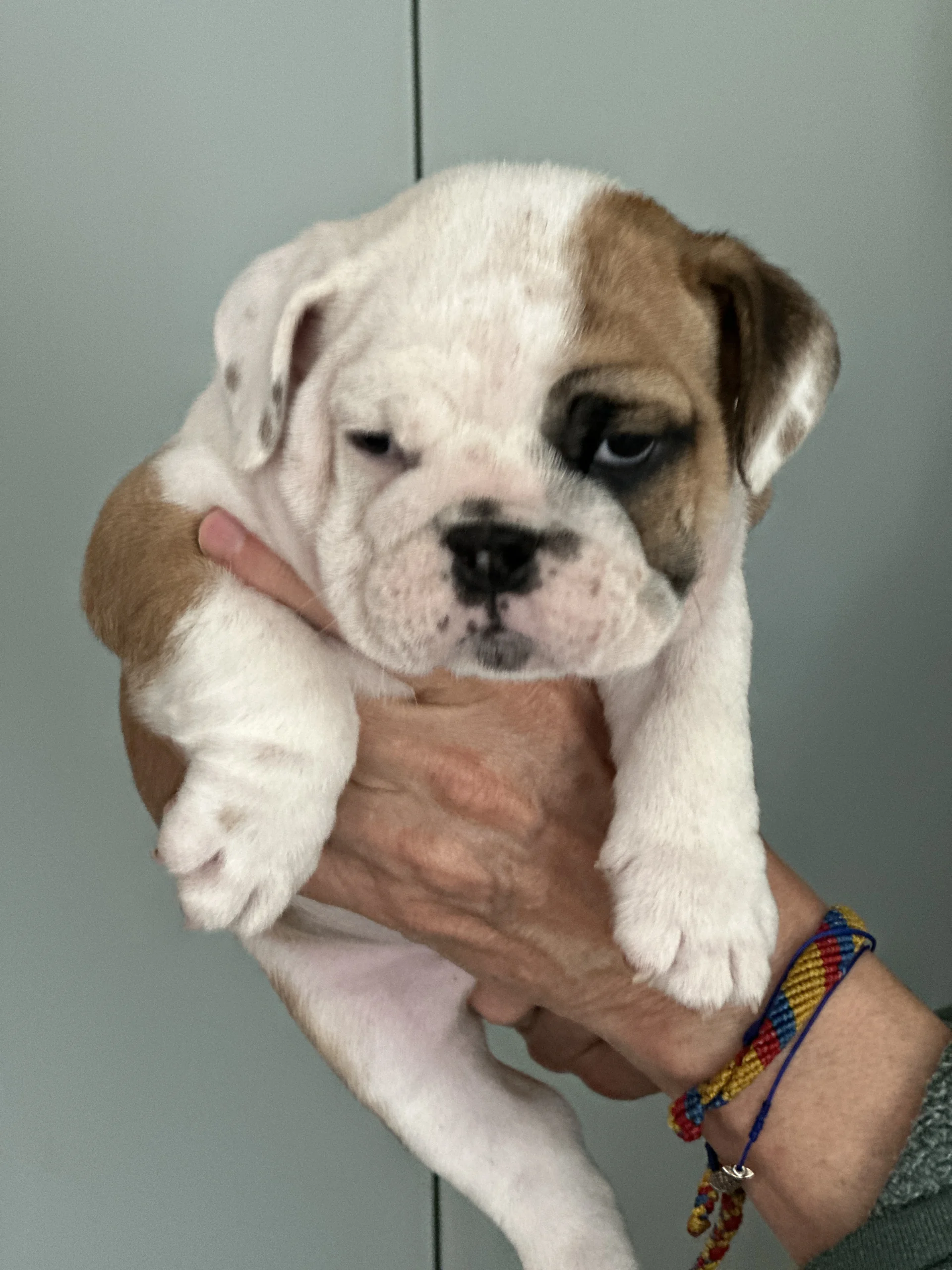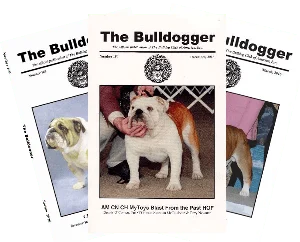AKC Gazette
September 1998
- WILLIAM ANDREE
PET-QUALITY PROLIFERATION
Recently I received an inquiry from a lady in my area wanting to know “everything” about how to breed and raise a litter of Bulldog puppies. I suspect each inquiries from prospective breeders are common in today’s canine marketplace. Thanks in part to a rash of nationally televised commercials, Bulldogs are now a rather high-profile breed.
Contributing to the increased interest in breeding litters of Bulldogs may be the relatively high prices most Bulldog breeders are fetching nationwide for pet-quality puppies. My personal observations are that breeders are having no trouble disposing of 8-week-old puppies for high prices. People such as the lady who called, who just happens to possess a breedable pet-quality male and bitch, might easily be motivated by dollar signs.
Given that almost all Bulldog bitches are artificially inseminated and that all Bulldog puppies are delivered by caesarean section, the cost of these clinical procedures does not seem to deter the first-time breeder. If the bitch is able to survive this major surgery and is bred again in six months, the “backyard breeder” might plan to reap a significant profit in just 12 months’ time. Provided the bitch remains fertile for another four or five years, the take from only one bitch could mean a good chunk of tax-free income, or so some would-be breeders might assume. It does not take a rocket scientist to figure out that such motivations are likely to trigger the beginning of a puppy mill.
Reputable breeders do not engage in this kind of breeding program, and they are constantly on the alert for prospective buyers who claim they only want ‘a companion’ for their other unneutered, pet Bulldog. Many reputable breeders now require suspected “backyard breeders” to agree by contract to have the puppy neutered when it reaches the appropriate age to do so. However, the terms of these sales contracts can easily be violated, and they are difficult to track and enforce.
The use of the AKC’s limited registration option may provide the reputable breeder with better control, since dogs so registered cannot produce AKC-registrable litters. Yet many breeders of quality dogs are reluctant to use this option for puppies sold as pets. Breeders may want, for various legitimate reasons, to preserve certain successful bloodlines, in case other animals of the line are unbreedable.
Not all novice breeders represent would-be puppy mills. If all or most reputable breeders were to insist on limited registrations for all puppies sold as pets, the number of serious new breeders would theoretically, and no doubt unnecessarily, decline. One could argue that the number of serious, reputable breeders has to be increased rather than diminished. We need more Bulldogs of quality, not fewer of them.
For many years, it has been my belief that pet buyers who pay a high price for puppies will take better care of them. Many prominent breeders I know share this philosophy, perhaps another reason pet Bulldog puppies cost so much.
Reputable breeders are in a situation where the more they ask for their puppies, the more other, less scrupulous people want to breed and sell puppies for a profit.
There is no simple, surefire way to prevent this dangerous proliferation of pet-quality specimens in such a popular breed, The best that we can do is to continue to tightly screen prospective buyers to determine their motives and rigorously follow up after the sale.
- William Andree, 204 S. Beach Dr., Monticello, IN 47960.











